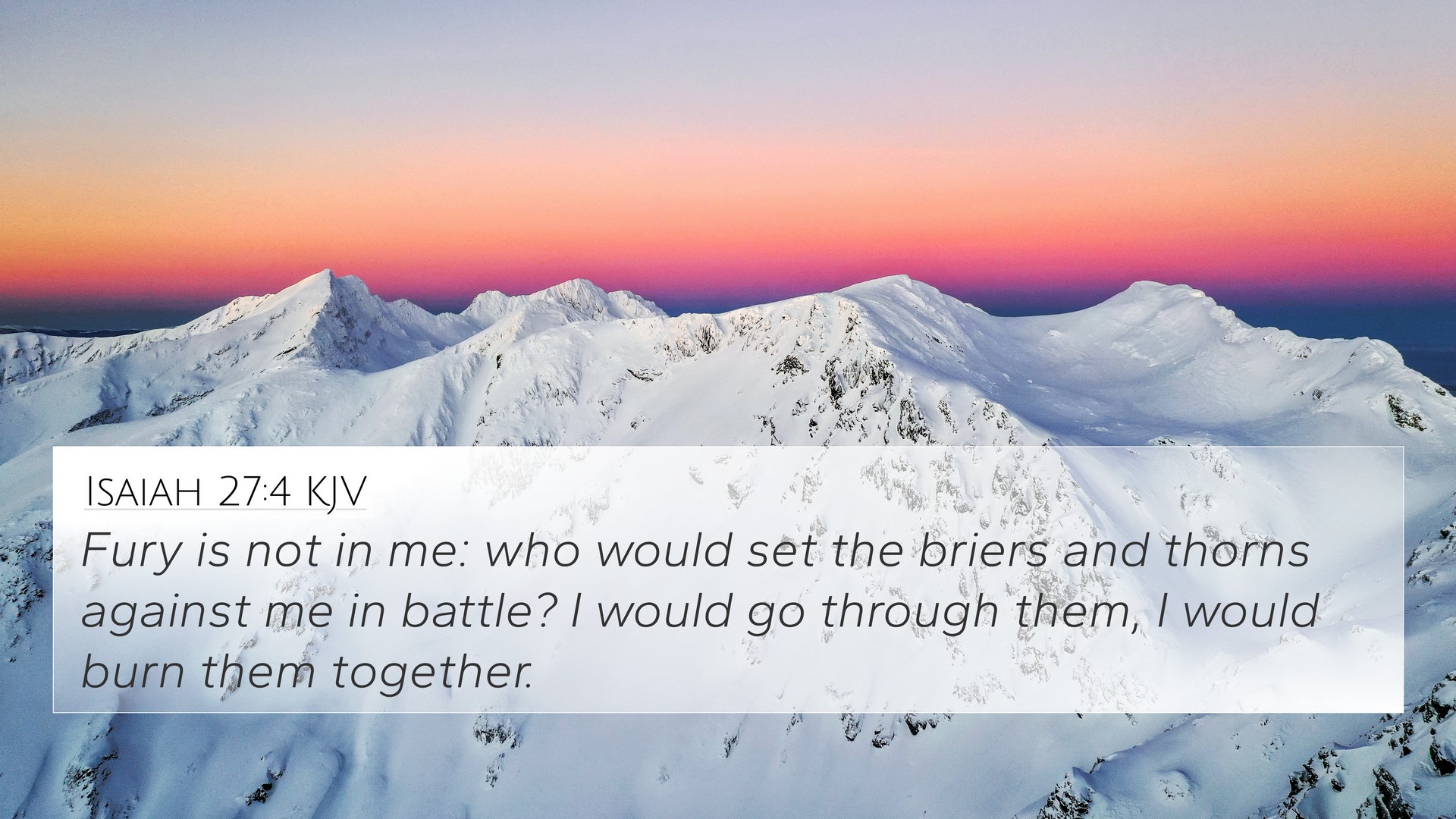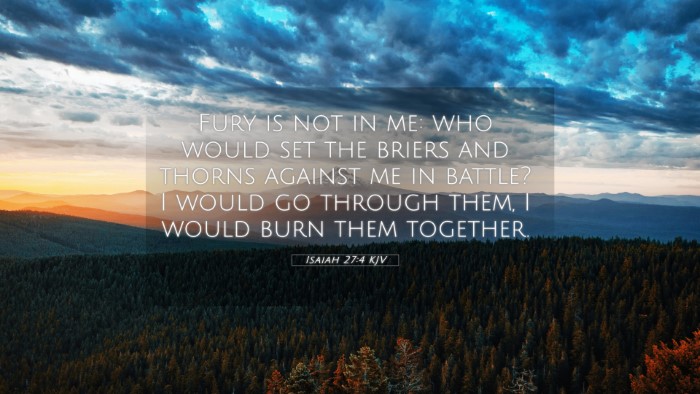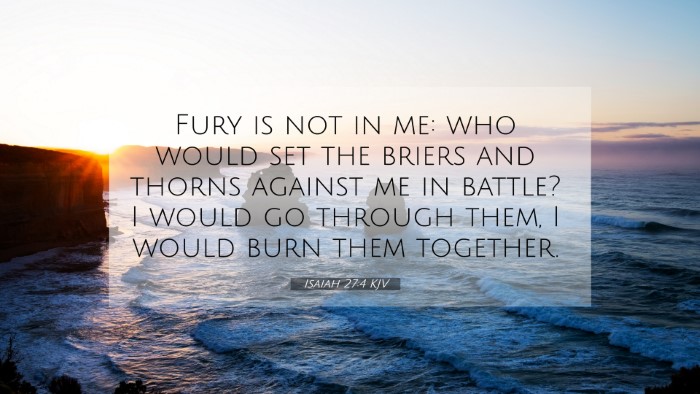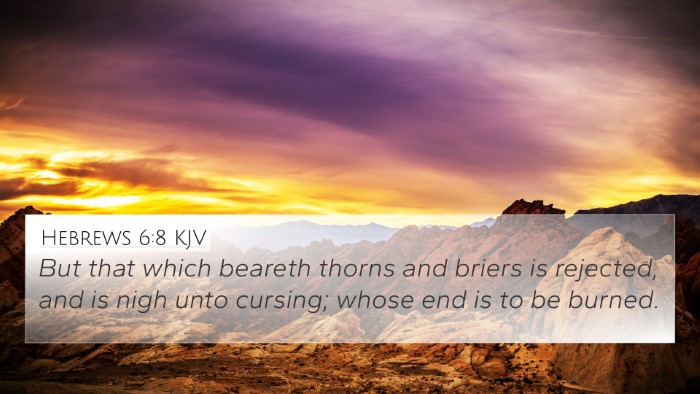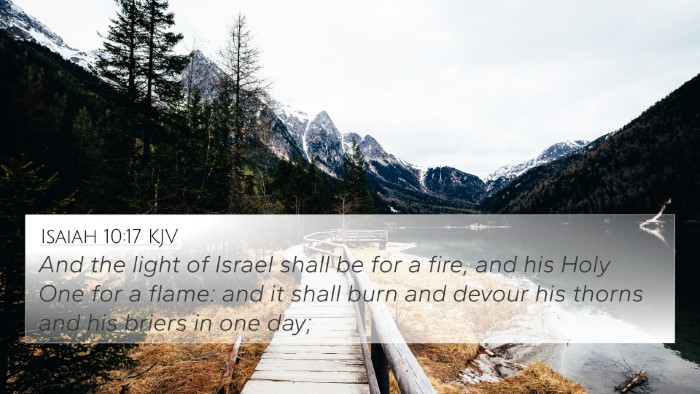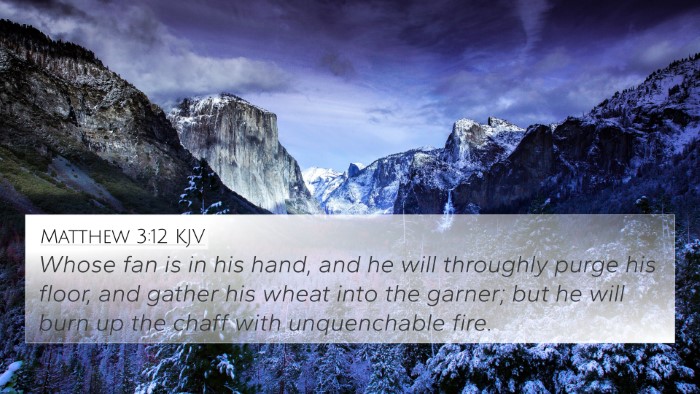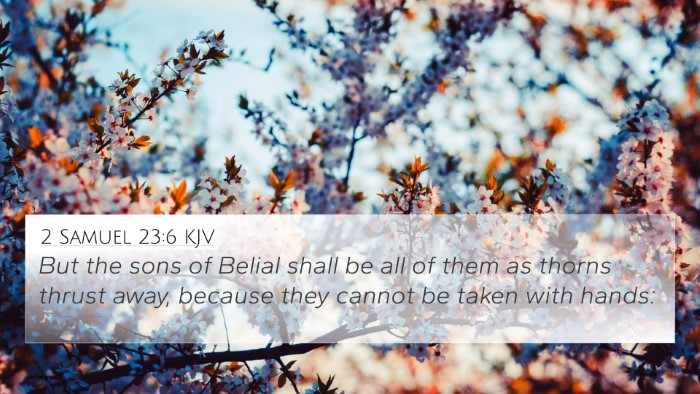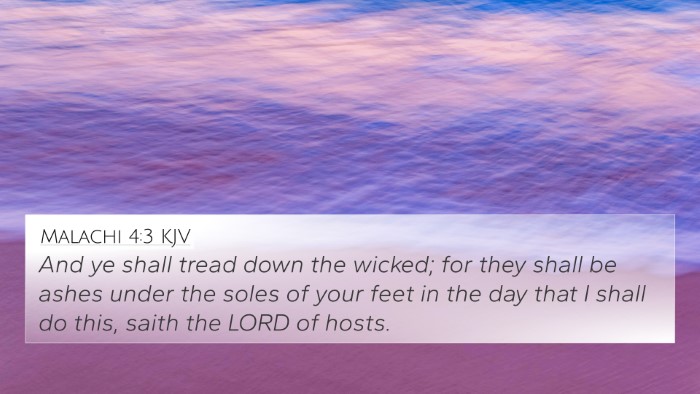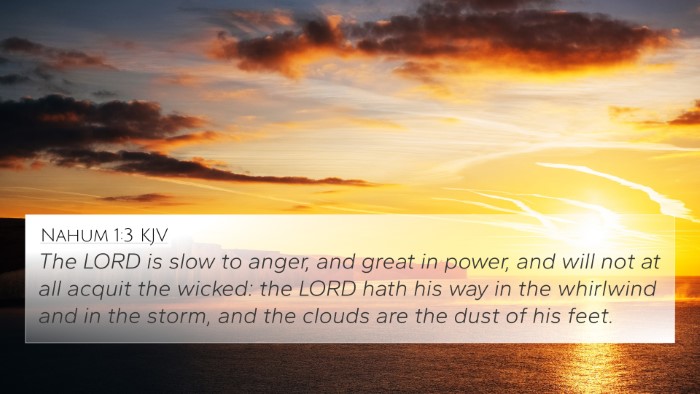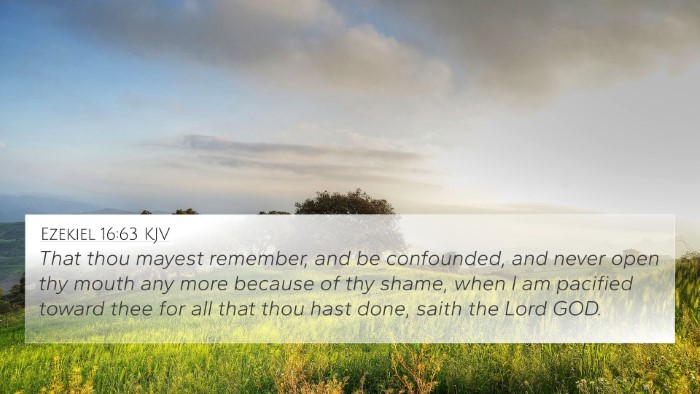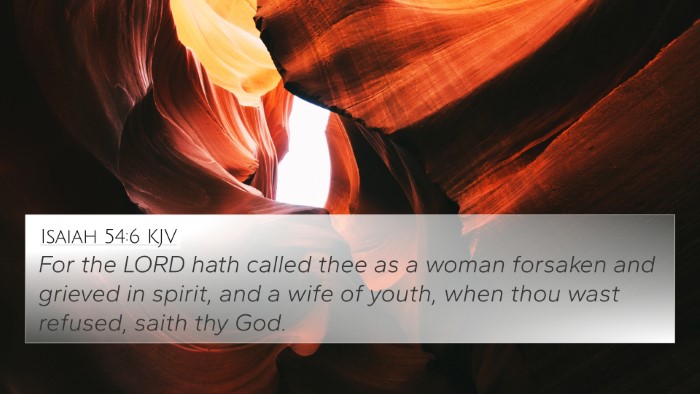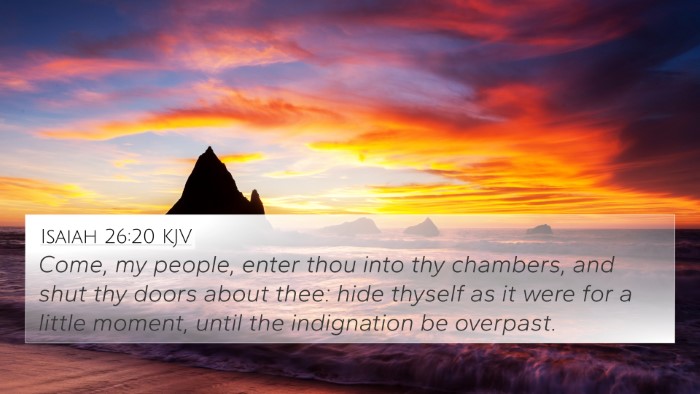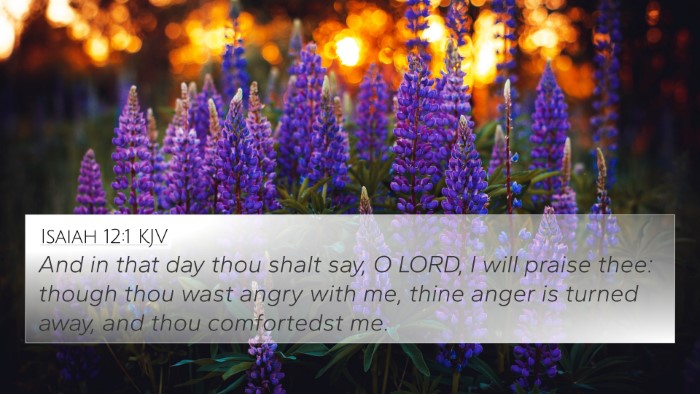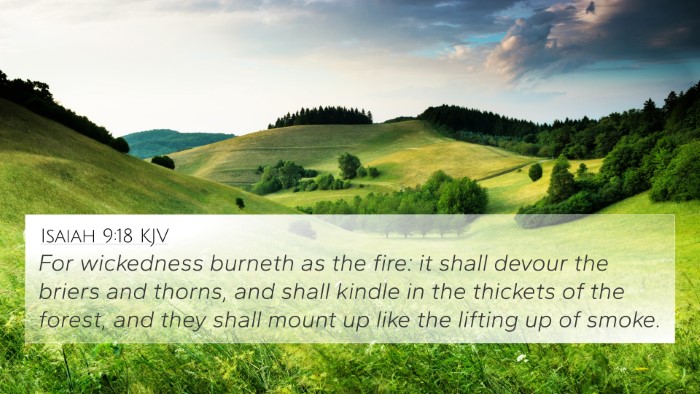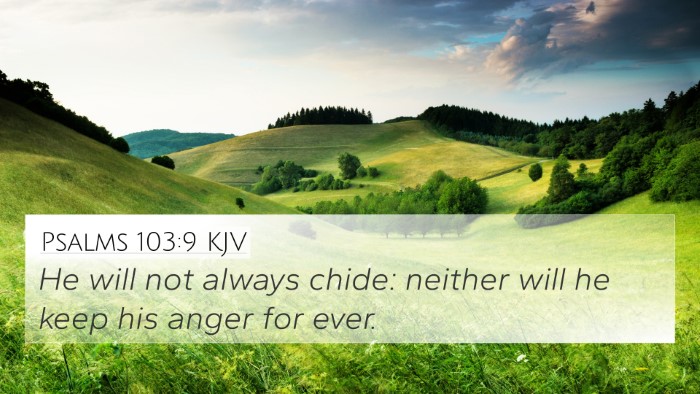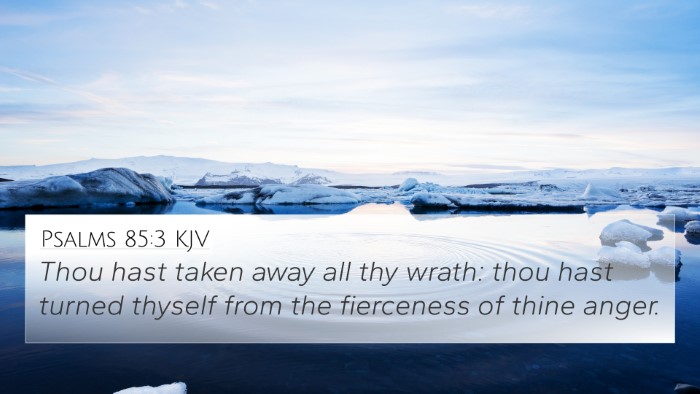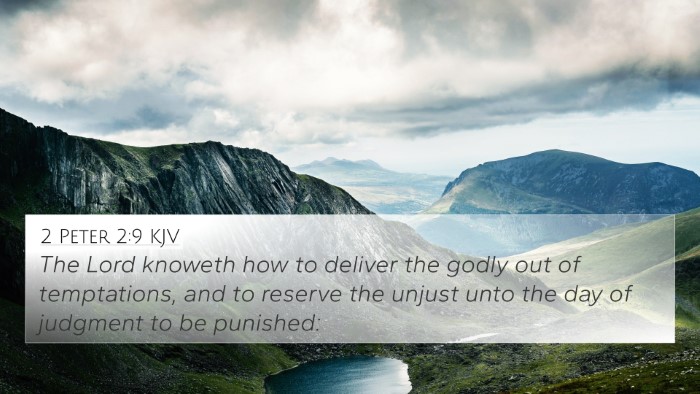Understanding Isaiah 27:4
Isaiah 27:4 reads: "Fury is not in me; who would set the briers and thorns against me in battle? I would go through them, I would burn them together." This verse reflects God's attributes and His relationship with His people, emphasizing His refusal to harbor rage and His willingness to protect and redeem.
Verse Commentary Overview
This passage is significant in its portrayal of God's disposition towards judgment and mercy. Insights from various public domain commentaries—like those from Matthew Henry, Albert Barnes, and Adam Clarke—will enhance our understanding.
Matthew Henry's Commentary
Matthew Henry emphasizes God's grace and the assurance that despite human failures, God remains composed and not overcome by fury. He likens God's approach to dealing with His people as one of kindness rather than hostility. The briers and thorns represent obstacles and trials, but God's willingness to 'burn them together' signifies His power to remove hindrances in pursuing a relationship with His people.
Albert Barnes' Commentary
Albert Barnes notes that this verse serves as a proclamation of God's control over chaos and His assurance that He will confront evil decisively. In Barnes’ view, the briers and thorns metaphorically highlight the challenges that God’s people face in their spiritual journey. God's fiery destruction of these barriers reveals His commitment to take action against those elements opposed to His will.
Adam Clarke's Commentary
Adam Clarke interprets the verse as a declaration of God's resolve. The 'briers and thorns' can symbolize adversarial forces, and God's willingness to 'burn them together' illustrates His strength in battle. Clarke stresses that this passage reflects the overall theme of hope, where Divine justice ultimately prevails over human adversities.
Key Themes and Messages
This verse encapsulates several important themes:
- The Nature of God: It displays God's merciful demeanor despite human iniquities.
- Overcoming Obstacles: It underscores God's capability and determination to confront the barriers that hinder spiritual progression.
- Divine Justice: The imagery of fire suggests purification and judgment, ultimately leading to restoration.
Bible Verse Cross-References
Isaiah 27:4 connects with various other scriptures, enhancing its context and understanding:
- Isaiah 9:19-20 - Discusses the consuming fire and chaos caused by sin.
- Luke 12:49 - Jesus refers to bringing fire on the earth, symbolizing judgment.
- Matthew 3:12 - John the Baptist speaks of the coming judgment and fire.
- Zechariah 13:9 - God purifies His people like silver and gold.
- Malachi 3:2-3 - The messenger of the covenant who will refine and purify.
- Revelation 21:8 - The fate of those who are unrepentant — the second death.
- James 4:4 - Friendship with the world is enmity to God, which relates to God’s opposition to earthly sinfulness.
Connections Between Bible Verses
Linking Bible scriptures allows for a deeper thematic analysis. The consistency across various authors and periods shows a unified message regarding God's character and intentions concerning humanity.
Bible Verse Parallels
Examining Isaiah 27:4 in conjunction with Hebrews 12:29 ("For our God is a consuming fire") illustrates the continuity of divine judgment and love through fire imagery.
How to Use Bible Cross-References
Utilizing tools for Bible cross-referencing enables deeper insight into themes:
- Bible Concordance: Use it to locate related scripture verses quickly.
- Cross-Reference Bible Study: Engage with thematic studies that draw connections across both the Old and New Testament.
- Bible Reference Resources: Implement detailed guides that outline inter-Biblical dialogues and link themes.
Conclusion
Isaiah 27:4 encourages readers to trust in God's sovereignty over life's trials. By recognizing His character through cross-references, one can appreciate the rich tapestry of God’s desire for a relationship with humanity, underscored by mercy and transformative power.
